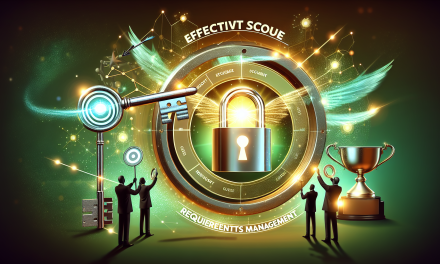Table of Contents
- 1. Introduction
- 2. Understanding Project Leadership
- 3. The Dynamics of Power
- 4. Crafting Influence
- 5. Navigating Politics
- 6. Strategic Negotiation
- 7. Case Studies
- 8. FAQs
- 9. Conclusion
1. Introduction
In today’s rapidly evolving business landscape, the role of a project leader extends far beyond mere management. A project leader must inspire teams, influence stakeholders, navigate complex politics, and negotiate effectively. Consequently, mastering these skills becomes crucial for success. In this blog post, we will explore the intricate dynamics of project leadership, focusing on power, influence, politics, and negotiation. Each of these elements plays a vital role in driving projects to successful completion.
2. Understanding Project Leadership
Effective project leadership requires a blend of technical skills and soft skills. While technical expertise ensures project managers can meet deadlines and manage budgets, soft skills enhance their ability to connect with people. These skills include emotional intelligence, communication, and strategic thinking. Project leaders who understand the art of leadership can build cohesive teams, foster collaboration, and ensure that everyone is aligned with project goals.
The Shift from Traditional Management to Leadership
Traditionally, project managers focused primarily on tasks and processes. However, modern project leadership emphasizes relationships and influence. Transitioning from a management mindset to a leadership mindset is essential. By doing so, leaders can significantly enhance team productivity and morale.
3. The Dynamics of Power
Power is a critical element in project leadership. Understanding different types of power—such as positional, expert, referent, and coercive power—can significantly impact a leader’s effectiveness. Each type offers unique advantages and challenges.
Types of Power
- Positional Power: Arising from one’s position in the organization, this type of power can be both beneficial and limiting. Leaders must recognize the balance between authority and empowerment.
- Expert Power: This power emerges from knowledge and expertise. When leaders share their knowledge, they enhance their credibility and influence.
- Referent Power: Building personal relationships fosters referent power. Leaders who are likable and trustworthy often find it easier to inspire and guide their teams.
- Coercive Power: Utilizing threats or force can create immediate compliance but often undermines long-term relationships.
Utilizing Power Effectively
To wield power effectively, leaders should first examine their own power dynamics and understand how to adjust their approach based on the project’s context. They must also cultivate relationships to enhance their influence. Participating in forums and discussions—such as the Project Leadership Course: Mastering Politics, Influence & Negotiation—can further enhance their understanding of these dynamics.
4. Crafting Influence
Influence in project leadership stems not only from authority but also from the ability to inspire and motivate. A leader’s approach to influence can determine the project’s trajectory.
Building Influence Through Communication
Clear and consistent communication lays the foundation for building influence. Leaders should engage with their teams regularly, sharing project updates and encouraging feedback. This practice ensures that everyone stays informed and feels valued.
Recognizing the Impact of Listening
Moreover, effective leaders understand the power of listening. By actively listening to team members and stakeholders, leaders can identify concerns and address them proactively. This approach fosters an environment of trust and respect, significantly enhancing a leader’s influence.
5. Navigating Politics
Navigating organizational politics is a crucial skill for project leaders. Politics can impact project outcomes in ways that might not be immediately apparent.
Understanding Organizational Culture
Every organization has a unique culture influenced by its values, norms, and dynamics. Leaders must take the time to understand this culture and how it affects decision-making. Recognizing key stakeholders, identifying their motivations, and understanding their concerns allows leaders to navigate political landscapes more effectively.
Building Alliances
In addition, forming alliances can enhance a leader’s ability to navigate politics. By collaborating with others and building mutual respect, leaders create supportive networks that can help in overcoming challenges. Strong alliances often pave the way for smoother negotiations and project advancements.
6. Strategic Negotiation
Negotiation is an essential skill for project leaders. Effective negotiation can lead to better project outcomes, whether negotiating with stakeholders, clients, or team members.
Preparing for Negotiation
Preparation is key to successful negotiation. Leaders should gather relevant information, understand the interests of all parties, and outline clear objectives before entering a negotiation. This strategic approach can lead to mutually beneficial outcomes.
Employing Collaborative Techniques
Furthermore, employing collaborative negotiation techniques promotes a positive atmosphere. Instead of viewing negotiation as a competing endeavor, leaders can approach it as an opportunity to solve a problem collectively. This mindset can lead to more creative solutions, enhancing relationships and trust.
7. Case Studies
Learning from real-world case studies offers invaluable insights into effective project leadership. For instance, examining examples of successful project leadership can clarify how power, influence, politics, and negotiation come together in practice.
Successful Project Management Examples
Consider the recent project undertaken by a large technology firm. The project leader utilized their expert power to guide the team while simultaneously fostering a collaborative atmosphere. Furthermore, they navigated organizational politics skillfully, building alliances across departments to secure necessary resources. In the end, the project not only met its deadlines but also exceeded stakeholder expectations.
Lessons Learned from Failures
On the other hand, examining failed projects is equally important. A notable project failure occurred when a lack of emotional intelligence among leaders led to poor communication and conflicts within the team. The inability to recognize and address team members’ concerns highlighted the importance of soft skills in project leadership.
8. FAQs
What are key skills for effective project leadership?
Some essential skills include emotional intelligence, communication, strategic thinking, and negotiation. These skills help leaders navigate challenges and inspire their teams.
How can I improve my negotiation skills?
To improve negotiation skills, practice active listening, prepare thoroughly, and focus on collaborative solutions. Additionally, learning from real-world scenarios through resources like Master Essential Skills in Project Planning, Scheduling, and Cost Estimating for Success can be beneficial.
How does politics affect project leadership?
Politics can significantly affect project leadership by influencing decision-making processes, resource allocation, and stakeholder relationships. Understanding the organizational culture helps leaders navigate these dynamics effectively.
9. Conclusion
In conclusion, project leadership requires a multifaceted approach that encompasses understanding power dynamics, crafting influence, navigating politics, and mastering negotiation. Developing these skills not only enhances a leader’s effectiveness but also drives successful project outcomes. For anyone seeking to advance their project leadership skills, training programs, such as the Project Leadership Course: Mastering Politics, Influence & Negotiation, can offer valuable insights. Additionally, consider exploring resources like Mastering Project Cost Estimation, Budgeting, and Value Engineering Skills for Constructive Success to further enhance your capabilities. Ultimately, the journey of mastering project leadership is continuous, and the effort invested will yield substantial rewards in both professional growth and project success.





